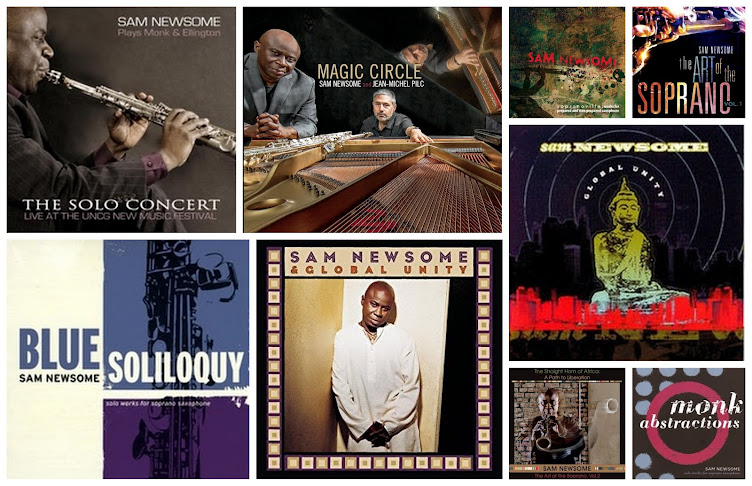In Malcolm Gladwell’s 2010 best selling book, Outliers, he
discusses what he calls the "10,000-hour rule." He arrived at this number by surveying several
classical musicians, discovering that in order for them to reach the level
of musicianship where they could perform as a concert player, they needed at least 10,000 hours of practice--which comes out to roughly 3 hours a day for 10
years. This rule, of course, extends far
beyond music; it applies to tennis players, golfers, pool-players--you name it.
When I first read this, I was reminded of a conversation I had
with a record producer who told me that I shouldn’t play the soprano exclusively
because it was too limiting. But I explained to him that it wasn’t so much that
the soprano is limiting as it is people don’t get a chance to hear the result
of someone having spent several years,
solely committed to developing a voice on the instrument. In other words, very few
people have put in their 10,000 hours mastering its ins and outs and all of its
idiosyncrasies.
I didn’t start playing the soprano exclusively until I was
30. And it really wasn’t until I was 40 that I started to feel like I had a
good understanding of how to play it. Up until then, I was always at the mercy
of my reed and mouthpiece. It was only after I put in my 10,000 hours that I
started to develop the chops and a deep enough understanding of the instrument to even attempt something as difficult as playing solo—not to
mention being able to play all of the extended techniques that have now become part of my sonic
repertoire.
Another factor to consider regarding the 10,000-hour soprano
rule is that one also needs to put in several hours of soprano-centric listening to gain a true understanding of how it
should sound. When I first started playing
the soprano exclusively, my sound was a lot louder. I could hold my own with trumpet players. But I wasn’t
producing a soprano sound. It was the tenor sax 8va, which is what I hear a lot
nowadays--either that, or alto.
I actually went through a transformation period of only listening exclusively to soprano players, as a way of erasing the sound of the tenor's lower range from my ears. I remember that I played a tenor saxophone a few years back and I was amazed at how high I was able to play. Mind you, when I only played the tenor, I could barely play a high G. Even while playing in the altissimo of the tenor, it never felt high enough. By that time, I was definitely hearing the higher range of the soprano.
I actually went through a transformation period of only listening exclusively to soprano players, as a way of erasing the sound of the tenor's lower range from my ears. I remember that I played a tenor saxophone a few years back and I was amazed at how high I was able to play. Mind you, when I only played the tenor, I could barely play a high G. Even while playing in the altissimo of the tenor, it never felt high enough. By that time, I was definitely hearing the higher range of the soprano.
Another thing I’ve noticed, too, is that, since players have
already reach a certain level of proficiency on one of the other saxophones, they’re
not striving as hard to develop the soprano to the next level. Typically what
happens is once players have a pretty good handle on how to play it in tune and develop and certain level of instrumental dexterity, much of time is spent trying out the latest mouthpiece
and horn--which I ultimately see as the beginning of the downward spiral. Many
of the new horns give players a false sense of accomplishment. The instrument
is easier to play in tune, but you don’t develop the skills necessary for real
instrumental control. Newer model horns and mouthpieces don’t solve problems, they just
enable players to mask them. And eventually they surface again.
You don’t have to use 10,000 soprano rule in the literal sense,
but it is good use metaphorically to understand that in order to play the
soprano well, it takes time, patience, and many, many hours of practice—sometimes
10,000 of them.








No comments:
Post a Comment